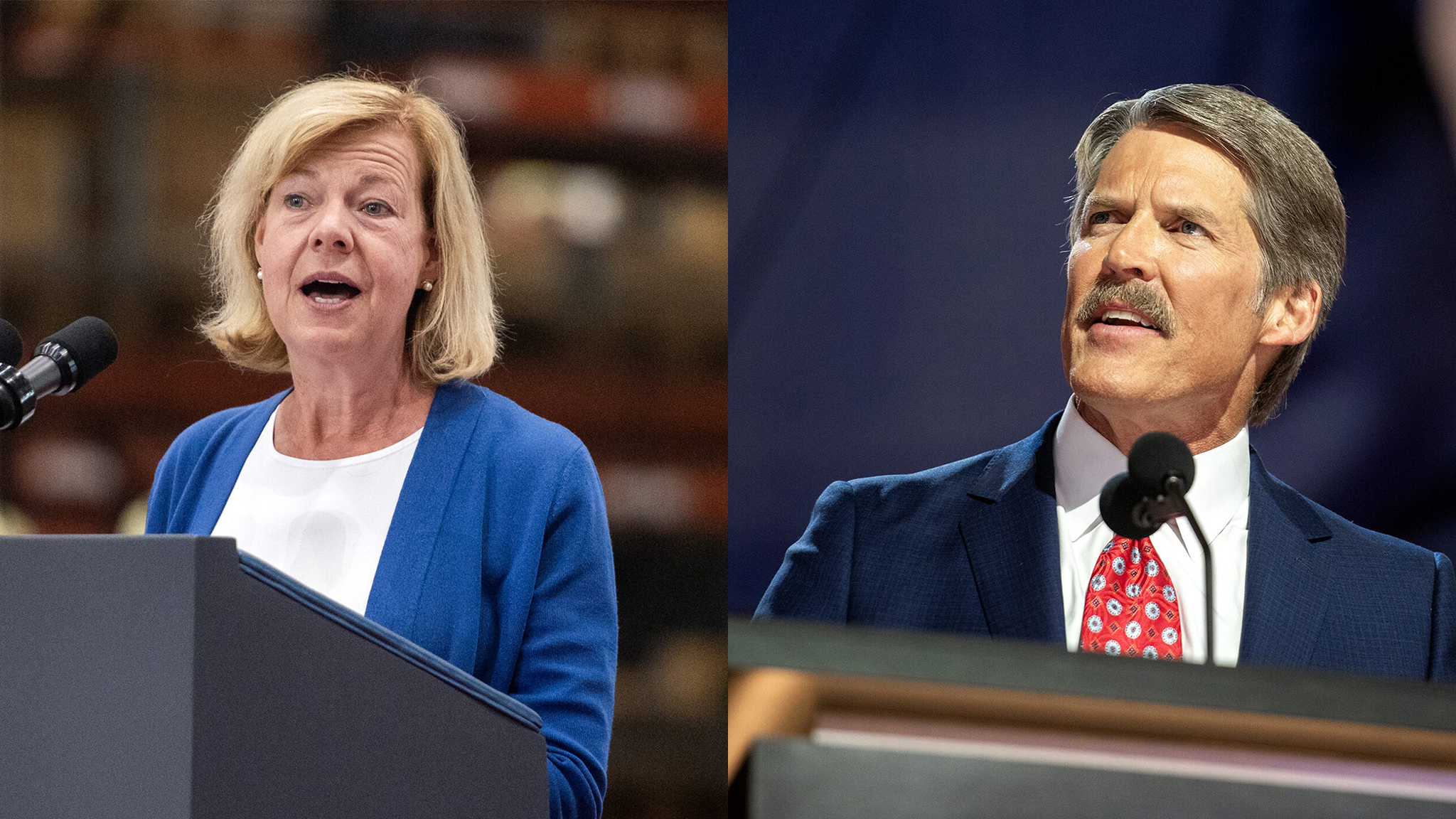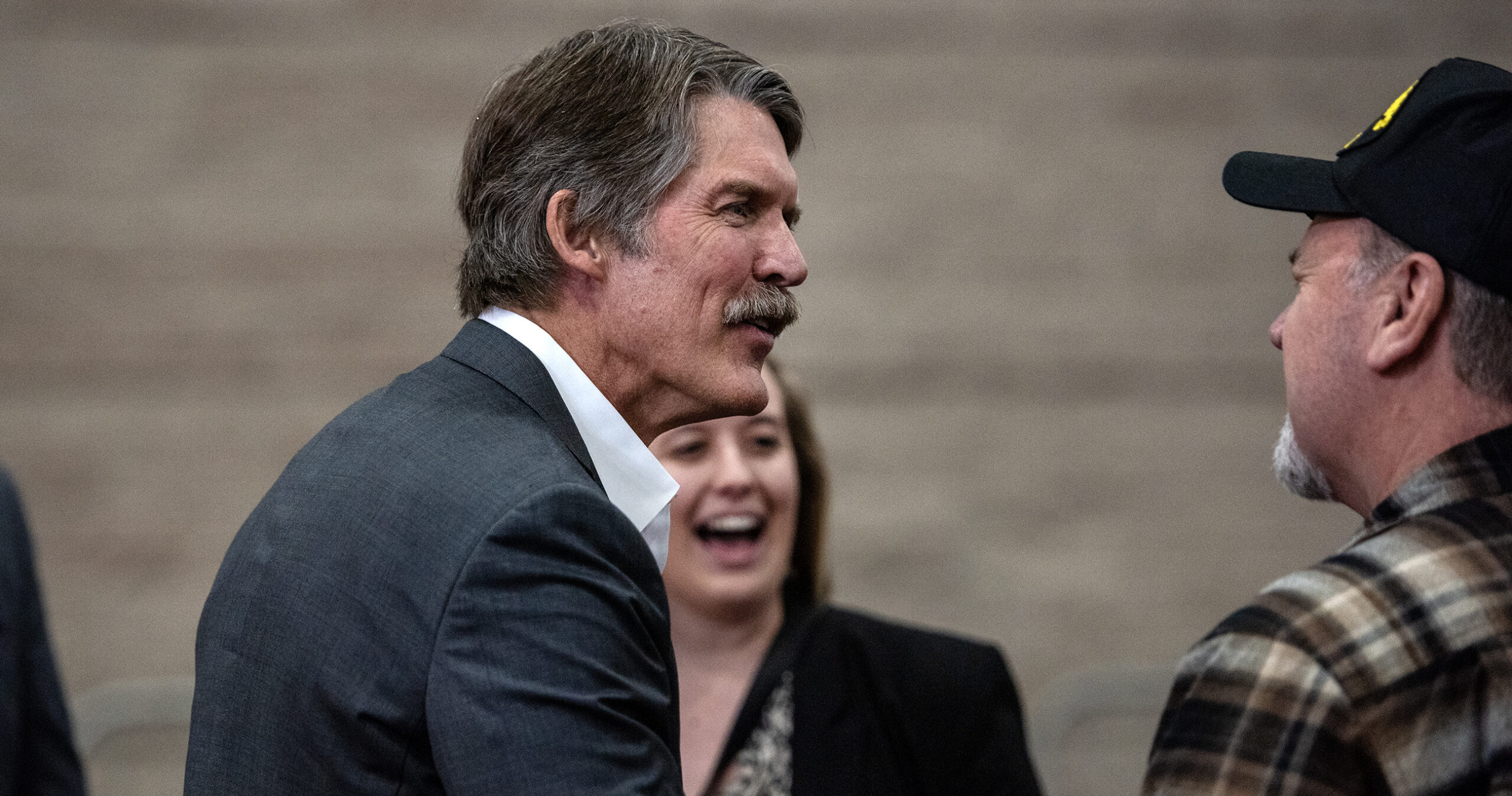Foreign Policy has not been a focus in the the current US Senate race in Wisconsin. But both candidates have staked out opposing positions on Iran’s nuclear capability and the use of drones in Pakistan andAfghanistan.
Health Care reform and job creation are the issues Tammy Baldwin and Tommy Thompson have spent the most time and energy sparring with each other over, and polls show that’s what most voters are most interested in. But sparks have also flown in their debates about how the U.S. should deal with Iran’s steady progress towards building a nuclear weapon. Thompson attacked Baldwin’s votes in Congress against imposing economic sanctions on Iran over the past several years, “I believe without a doubt the more severe sanctions we can have the better off we are. My opponent voted against sanctions in 2001 , 2006, 2009 and 2010 and received $60,000 from an organization that supports Iran.”
Baldwin says she voted against sanctions up until last year because she hoped that an uprising against Iranian President Mahmoud Ahmadinejad would succeed and U.S. Iran relations might improve, “I felt it very important that we send a message to those people that we wanted then to succeed in regime change from within, especially when we’re talking about stakes as high as sending Wisconsin young men and women into harm’s way, I would sure like to see regime change from within.”
Stay informed on the latest news
Sign up for WPR’s email newsletter.
But Baldwin had a tougher time defending herself against the charge she had received $60,000 in campaign funds from the Council for a Livable World, an organization that has consistently opposed sanctions against Iran and has called for the United Nations to take the lead in blocking Iran’s nuclear ambitions. In response to that funding charge she counter punched by accusing Thompson of violating economic sanctions with his own investments, “You have tens of thousands of dollars invested in companies that do business with Iran including a company that teams up with Iran doing uranium mining in Africa, I find that shocking.”
Thompson immediately shot back saying he had only just discovered this investment and had sold it the day of the debate. UW-Madison Political Science Professor David Canon says this spat over Iran isn’t likely to affect the independent, undecided voters who both candidates are seeking to sway, “The Baldwin supporters are still going to support her despite these charges. The Thompson supporters aren’t going to be moved away from supporting him because of allegations about the businesses he owned. And the independent voters are going to look at this and say they both have some problem on this issue so I’m really not quite sure what to do with this.”
The only other foreign policy issue that’s received any attention in this campaign is President Obama’s use of predator drones to kill Taliban and Al Queda leaders in the border area between Pakistan and Afghanistan. In a debate in Wausau, Baldwin laid out a somewhat nuanced argument that may please the anti-war voters in her base in Dane County but may not carry much weight with independent voters, “They are used for surveillance, they’re used for intelligence gathering and they’re also used for strikes I think with this new technology we have to review the rules of engagement and we haven’t yet with this new technology.”
Because Baldwin has consistently voted for the use of diplomacy before exercising military options she seems to be saying here that she supports drones for spying but wants tighter rules for their use in killing people identified as terrorists. Tommy Thompson’s response to this question was a little more straightforward, “We have to be careful so that we do not kill innocent bystanders. But drones are able to be utilized to take out individuals from terrorists organizations. We’ve got to have all of our assets available. These individuals are terrorists.”
But it’s unlikely either Thompson or Baldwin will have any say on whether the current drone policy is changed or not. Political Scientist David Canon says the president’s power as Commander in Chief gives him the final say. Canon says neither Thompson nor Baldwin are likely to be appointed to the Senate Foreign Relations or Intelligence Committees and so would not be in a leadership position when it comes to shaping the debate over Iran or the use of drones.
Wisconsin Public Radio, © Copyright 2024, Board of Regents of the University of Wisconsin System and Wisconsin Educational Communications Board.




